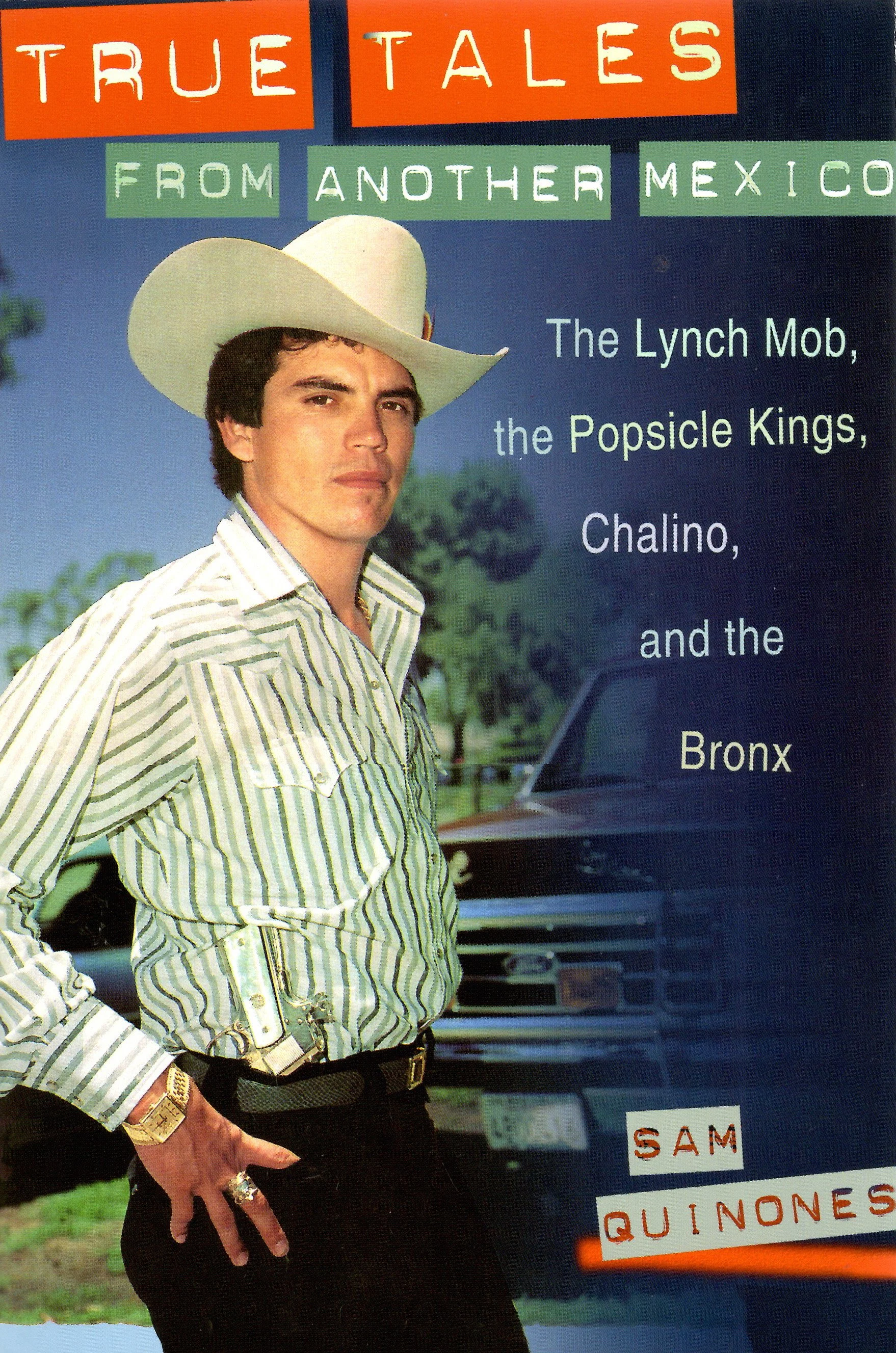True Tales from Another Mexico
The Lynch Mob, the Popsicle Kings, Chalino, and the Bronx
______________________
PURCHASE: Amazon.com* Independent Bookstores
*$4.99 on Kindle
Sam also now sells signed copies of True Tales from Another Mexico, in paperback, for $22 each.
Please email him to purchase: samquinones7@yahoo.com
______
Chalino Sanchez was a poor Mexican kid, who murdered the man who attacked his sister in his village, fled north, and in the suburbs of Los Angeles became a underground singer of narcocorridos — ballads about drug smugglers – until he himself was murdered.
Then he became a legend.
Two traveling salesmen plied their wares in a sweltering small town. The next day they were hanging from the town’s bandstand lynched by a mob, a thousand strong.
A bunch of humble rancheros invent the Michoacana popsicle — paleta —, and a business model that allows poor people to move into the middle class without going illegally to the U.S. or trafficking drugs — then erect a statue to the product that did so much for them.
Hailed as a cult classic, Quinones’ second book, True Tales From Another Mexico: The Lynch Mob, the Popsicle Kings, Chalino, and the Bronx takes us to a colony of drag queens — jotos — preparing for Mexico’s oldest gay beauty contest.
We follow a Oaxacan Zapotec basketball team in Los Angeles as its coach, the Michael Jordan of Zapotec hoopsters, fights to restore the purity of his sport that has been besmirched in America.
Aristeo Prado was a gunfighter and robber — a valiente trying to escape his past — when he was ambushed on a noontime street and died going for his gun.
Telenovelas, once a propaganda vehicle of Mexico’s one-party state, flourished with political change and touched topics — corruption, drug trafficking and poverty — that once were prohibited.
In Nueva Jerusalen, a theocratic village run by an excommunicated Catholic priest, residents receive voting instructions from the Virgin of Guadalupe.
We enter the Bronx – the rude boys in the PRI wing of Mexico’s Congress — as they struggle with the meaning of rebellion.
True Tales from Another Mexico are the stories of people whose stories never get told.
Reviews
“… a tireless reporter, fascinated by the stories that lie behind an ephemeral headline in the Mexican press.”
The Economist
“The most original American reporter on Mexico and the border out there.”
SF Chronicle Book Review
“Sometimes, the narrative takes unbelievable turns, yet the author has met each of his subjects, and, while his text is by necessity anecdotal, his is a refreshing treatment of a country in which everything has been penetrated by the ruling party. He recounts stories of men who dress as women, of the narcotraficantes, and of the chamber of deputies’ section called The Bronx, where misbehaving is both common and a specialty.”
Library Journal

